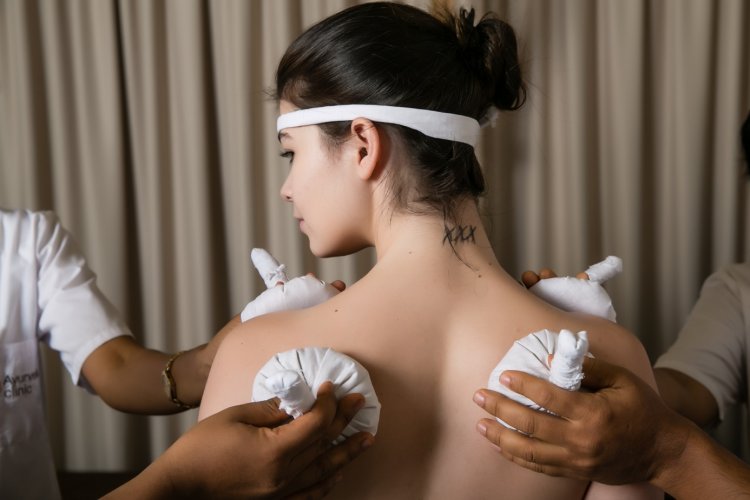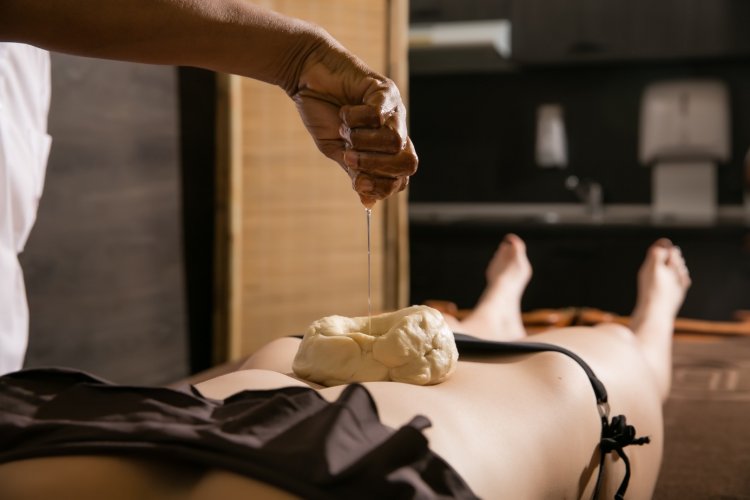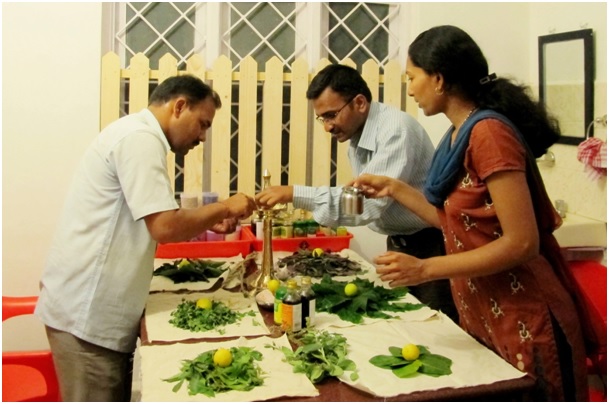Search for general disorders in the body
Treatment with Ayurveda is already very popular in Bulgaria because there is no illness that this medicine will not cure. It turns out, however, that there are people seeking help from Ayurveda without respecting the basic principles and rules of this science, which is over 5000 years old.
There have been cases when patients go to a consultation and diagnosis review, having previously used alcohol. This is absolutely unacceptable to Ayurveda, not only because alcohol is for her the "food of ignorance" and is incompatible with its notions of way of life.
Alcohol, as well as opiates, disrupt the patient's conscious condition, which prevents the correct diagnosis. Part of this diagnosis is verification of gesture dynamics, voice power, posture and gait features.
This is no wonder, because Ayurvedic disease is not just a change in an organ, but a total violation of the body's overall balance. These energy balances include both physiological activities and the unity of body, mind, spirit.
They are interconnected and influenced. For example, emotional disorders such as stress and depression are directly related to impairment of certain organ functions in the body.
Ayurveda diagnostics
Therefore, when diagnosing Ayurveda, the physician is also interested in things that may be side-by-side – relationships with family and relatives, problems in work or privacy, and so on.
Ayurveda deals with the specific illness, but at the same time seeks the symptoms of general disorders in the body to restore balance and eliminate the cause of the disease.
In diagnosis, a qualified Ayurveda doctor may, for example, detect 600 types of abnormalities in the pulse rate. However, in order to make the findings accurate, the patient should be in a state of calm, not drinking coffee, strong teas, etc .; not be hungry, let the doctor know if he takes any medications or has taken any medication recently.
The individual approach to the patient
For Ayurveda, every organism is unique with the peculiarities, ratios and balance sheets given to it by nature. This determines the strictly individual approach to each patient in search of general violations of these balances.
For the same illness of two people in Ayurveda clinic Sofia, for example, the Indian doctor will not "write the pills for this disease" but will approach personally and will decide what methods to combine in everyone. Because the usefulness of one, even if it is environmentally friendly, may not be good for the other.
Ayurveda's goal is to make the organism "on the way" of his return to his natural state, to activate his defenses and to start self-regulating again.
Therapy actually involves changes in the overall lifestyle – food and diet, daytime activities, sleep. This pattern, applied to treatment that is strictly personal, should be administered by the patient after healing. Otherwise he will get sick again.
It should be made clear that it is not about "copying" everyday the course of treatment, but respecting the principles and the psychological attitude. The patient receives a specific plan from the doctor.
The plan includes the necessary basic daily activities during the different seasons; Some home treatments, diet regimes with a certain combination and consistency of recommended foods, principles of hygiene, spiritual practices.
This individual approach of Ayurveda has accumulated tremendous knowledge and experience over the millennia. This includes knowledge about the human organism and about nature. In order to "unravel" any type of uniquely different body in its physical, spiritual, mental and emotional unity.
Diagnosis is thus accurate, allowing correct selection of treatment methods and tools, avoiding "trial-error" practice and achieving optimal treatment results. From now on, everyone holds their health in their hands.
Methods and Tools of Ayurveda
Ayurveda is a natural medicine. All the methods and tools they use derive from the laws of nature or are fully compliant with them.
Methods are directed both to body imbalances, mental and emotional, because they are dependent on each other as "coupling vessels".
In addition, it is especially important in healing that the thoughts, and hence the patient's feelings, are aimed at healing. Ayurveda has special methods aimed at restoring the mental balance. They are aimed at improving intellect, increasing confidence and awareness of problems as a way to restore balance. Spiritual practices are also included.
There are two basic approaches to treating the body. If the disease is in a mild, initial form, the balance between the body constructs is restored without the need for a complex of purification procedures because there is no serious accumulation in the body.
In the advanced stages, purification of the body from the accumulated poisons is carried out because, for Ayurveda, the causes are the cause of the diseases. Toxins, free radicals, heavy metals and other poisons are shed in the body and interfere with normal functions.
Purvakarma and Panchkarma
Cleansing is by combining external and internal procedures – Purvakarma and Panchakarma. In the Turbamakum, toxins are cleared from the upper layers of the body and, in particular, they are prepared for internal purification. Outdoor therapies use healing oils, herbs, herbal infusions, saunas. Panchkarma works with laxatives and cleansing agents, once again taken from nature.
In the treatment, food and diet are particularly important because poisons in the body come mainly from them. Eating Ayurveda is a complete system that takes many things into consideration for the body.
The "settings" and needs of the different parts of the day are taken into account, how the different foods are consumed, and what is their combination and in what sequence. Separately, food itself is defined as useful / harmful for different body types.
Eating in Ayurveda
Eating in Ayurveda is like a ritual. When a person eats, he should do nothing else. His thoughts should not be "elsewhere," but entirely on food.
It should not eat, and if it is possessed by strong feelings, especially if it is negative. Before you sit down to eat, you have to calm down completely to be able to focus on the upcoming meal.
The food itself should be delicious. Otherwise, even if made from the right products, it does not carry the required charge and is not useful. The same is true if the food is consumed more than three hours after preparation.
Therefore, semi-finished and preserved foods are categorically in the food with the "charge of ignorance". However, in Ayurveda, food is prepared only with fresh products or freshly prepared ingredients.
In addition, according to the type of body, people need to varying degrees from different nutrients. This determines the different combinations of food types.
Ayurveda and eating rules
There are also common Ayurvedic eating rules that are tailored to how to digest the food and the incompatibility of certain foods. For example, fresh milk and sour milk, say, ayran, are incompatible with fish, should not be combined with meat. Milk is not combined with fruit. Fruits should not be consumed as a dessert at the main meal, an hour or two after it.
It is also advisable to take enough water, but not during meals because it dissolves gastric juices and digestion is difficult. The liquid taken during a meal should be up to 1 cup, avoiding fizzy and cold beverages.
There are also special requirements for those who prepare the food. While cooking, they have to have clean, positive thoughts, their clothes clean, the room clean, because the food can absorb the negative energy and even the useful food becomes harmful.





0 Comments